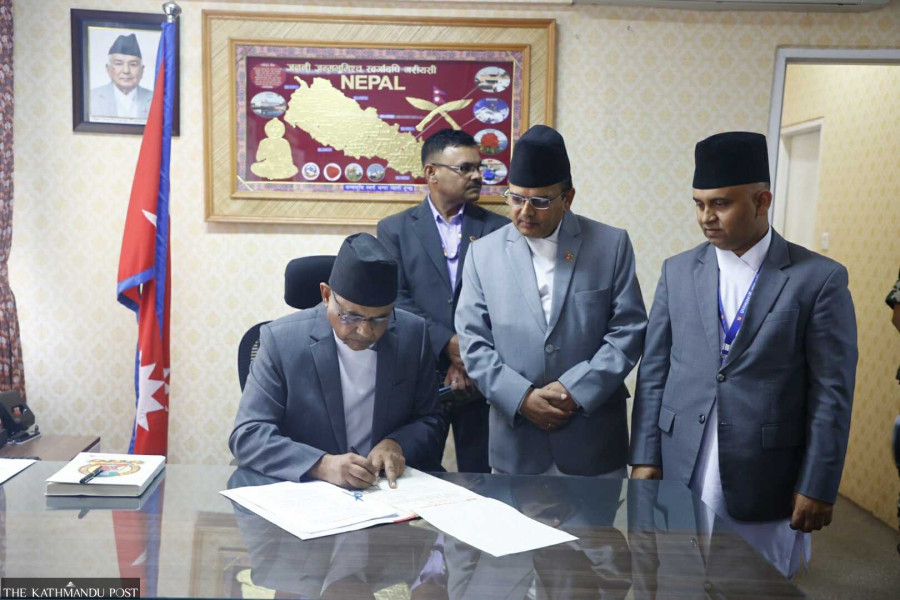Politics
From corporate lawyer to Supreme Court bench, Sinha now takes on ministerial role
The former justice, known for landmark rulings and a career rooted in a family tradition of law, now faces the test of governance.
Durga Dulal
Former Supreme Court Justice Anil Kumar Sinha was sworn in as Minister for Industry, Commerce and Supplies. He will also oversee the Ministry of Law, Justice and Parliamentary Affairs and the Ministry of Land Management, Cooperatives and Poverty Alleviation.
Sinha, chosen by Karki for his legal acumen and experience, now transitions from the judiciary to the executive, a move that will test his judgment in the political arena.
Appointed to the Supreme Court on August 1, 2016, Sinha spent over seven years on the bench, primarily handling constitutional disputes, criminal cases and commerce-related cases.
He was involved in high-profile cases, including the eligibility of former Commission for the Investigation of Abuse of Authority chief Lokman Singh Karki, the first dissolution of the House of Representatives, and disputes related to the Tax Settlement Commission.
Several of his judgments are now cited as precedents. Beyond his rulings, Sinha actively promoted digitalisation in the Supreme Court.
Sinha hails from a distinguished legal family. He is the son of senior advocate Sushil Kumar Sinha, and the grandson of Devanath Prasad Verma, Nepal’s first senior advocate. His maternal grandfather drafted key legal statutes, and Verma was directly licensed as a senior advocate by the Supreme Court’s full court. Law dominated his household, shaping him into a highly skilled lawyer and eventually a judge.
Initially, Sinha did not intend to pursue law. He had aspired to be a civil engineer and enrolled at Amrit Science Campus. However, a political incident at the college and a mistaken arrest redirected him to legal studies. Concerned about falling behind peers in science, he switched to law and worked diligently to establish his career.
Sinha graduated from Nepal Law Campus in 1982 and practised law continuously until his Supreme Court appointment. During his legal career, he argued over 10,000 cases, winning many high-profile tax disputes, though he sometimes faced defeats that temporarily discouraged him. He credits his father’s guidance for maintaining perspective on wins and losses.
Known for his discipline, Sinha worked up to 18 hours a day and frequently travelled up to 60 km daily, said his colleagues.
Sinha retired from the Supreme Court on 31 October 2023. Recently, he served on an aviation security study committee. With decades of experience bridging traditional and modern legal practices, Sinha is seen as a lawyer capable of analysing both the old and the new.
As he assumes ministerial responsibilities, the country watches how his legal expertise will translate into governance.




 8.75°C Kathmandu
8.75°C Kathmandu














